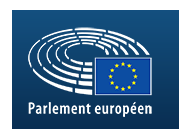Document type : Answer from the European Commission
Authors: Question: Marco Dreosto (ID), Anna Bonfrisco (ID), Massimo Casanova (ID), Annalisa Tardino (ID), Isabella Tovaglieri (ID), Luisa Regimenti (ID) Reply: Mr Breton on behalf of the European Commission
Combating the online sale within the EU of banned items that cause animal suffering
In recent years, we have seen a surge in sales on online marketplaces where shoppers can buy practically anything. Unfortunately, in their drive for sales, many large companies such as Amazon or Wish have started selling items of which the possession or use is banned in many Member States as they can be used to inflict animal suffering. For example, Amazon is selling a dog ear cropping kit for just EUR 31, although the practice is banned under the European Convention for the Protection of Pet Animals and a criminal offence in many Member States. Similarly, on the marketplace Wish, banned traps and nets for catching mammals, fish and wild birds are available for just a few euros. There are Community-wide calls for the EU to clamp down on not only the illegal trafficking of animals but also their mistreatment following the sale of harmful products that are banned at the EU level or within Member States.
In the light of the above:
Can the Commission say what it intends to do to halt the online sale and advertising of banned products that harm animals?
Answer: On December 2020, the Commission proposed the Digital Services Act (‘DSA’), a horizontal legislative act to regulate the responsibilities of digital service providers that act as intermediaries in their role of connecting consumers with content, including information related to goods and services.
The proposed DSA sets out effective means for all actors in the online ecosystem to counter illegal content, as defined by Union law or national law consistent with Union law.
Therefore, the DSA does not itself define the illegality of content. In this context, any information related to commercial offers or advertisements of items that cause animal suffering defined as illegal by Union law or national law consistent with Union law will be covered by the obligations laid down in the proposed Digital Services Act.
More specifically, the proposed DSA empowers users to report illegal content related to goods through a harmonised notice and action mechanism.
Notice and action procedures also apply for potentially illegal ads, as for any other type of illegal content. Entities that have demonstrated particular expertise and competence (‘trusted flaggers’) will have a privileged channel to report illegal content.
The proposed DSA also regulates cross-border removal orders addressed by the judicial or administrative authorities to intermediary service providers established in other Member States in relation to illegal content.
Under the proposed DSA, certain online platforms will also be requested to trace the traders operating on their platforms. This will ensure a safe, transparent and trustworthy environment for consumers and discourage traders who abuse platforms to sell illegal products or services.






